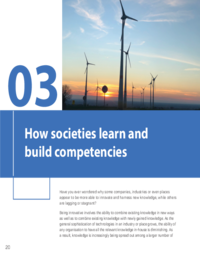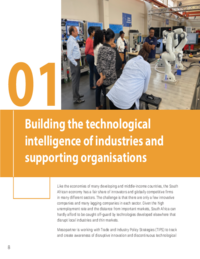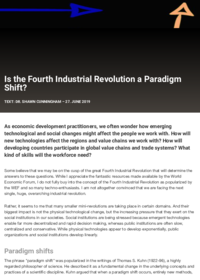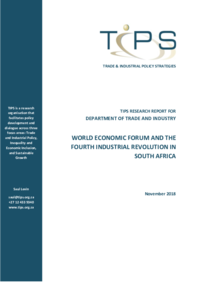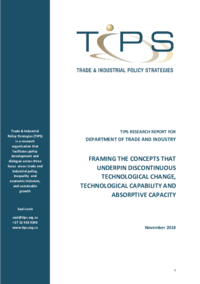Innovation Systems
Dynamic entrepreneurship is a necessary yet insufficient condition for vibrant economic development. Entrepreneurs and companies need to be supported by systems of institutions and organisations that are constantly upgrading to respond to the necessities of a globalised market place. Perhaps Paul Krugman is right in his claim that countries do not compete, but locations definitely do compete. Prosperity in a given region is defined by its ability to shape a competitive advantage. This requires a bottom up process of addressing the factors and systems that are influencing entrepreneurship, collaboration, innovation and competition. Meso level institutions must be responsive and to a certain degree pro-active in addressing the needs of the firms, networks and industries that they work with. Ultimately this will result in reforming policies and changing the behaviour of different actors.
Mesopartner's approach is based on the understanding that a local community has to create a competitive advantage in order to prosper. This approach must be focused on the health and the well-being of the private sector and its relationship with its supporting environment. This is not possible without the cooperation of a broad range of private, public and civil society stakeholders.
Furthermore, the competitiveness of a territory or sub sector is based on its ability to innovate in a systemic way. Again, innovation is not only based on efforts inside companies but also on the effectiveness of the local or regional innovation system.
The actions to improve territorial or sectoral competitiveness and innovation systems must be seen as a process and not as a research project or a few interventions aimed directly at firms by a generous public sector. We believe that this upgrading process must start small and then grow more sophisticated as stakeholders learn to work together. We therefore take a strong process and change perspective on upgrading the competitiveness of territories and the innovation systems therein.
Mesopartner addresses this theme in several ways.
Firstly, we develop training material, literature and a range of publications available under a creative commons license in order to equip stakeholders to make a meaningful contribution to economic development. For instance, the LEDCast podcast series provides short audio clips that explain many elements of Local Economic Development or territorial development as we like to call it nowadays. We also lecture as part of University programmes.
Secondly, we develop different diagnostic and process upgrading methodologies and tools. For instance, we have developed methods that help to identify practical activities to shape the competitive advantage such as the Participatory Appraisal of Competitive Advantage (PACA) method. A method that we have developed to respond to the need to stimulate the improvement of innovation systems is called RALIS (Rapid Appraisal of Local Innovation Systems) For more information please visit our RALIS page.
Thirdly, we build the capacity of public officials and private sector experts to use our concepts and methods. This could either be in the form of an open training event, or as a customised capacity-building event. In many of our contracts we are asked to not only train, but to also lead a diagnostic process to build the capacity of staff, experts and institutions to continue with their own economic development work. This sometimes takes place in the form of coaching.
Lastly, Mesopartner conducts research and development on the topics of improving competitiveness and innovation from the bottom up. This may take the form of participation in academic research and cooperation with leading research organisations and think tanks or universities, or it could take the form of action research to try and understand and solve a specific problem in a systemic way. We try to document and further develop our insights in a way that leads to more practical methods, but at the same time we understand that we have to contribute to the global discussion on more effective development cooperation.
Contact us
If you would like to engage us on this topic, email Shawn Cunningham.
Mesopartner methods and topics that support Innovation Systems
RALIS - making innovation systems work better
PACA - mobilising local actors to improving their competitiveness
Systemic Insight - understanding the four dimensions of systemic competitiveness and the way in which they interact


